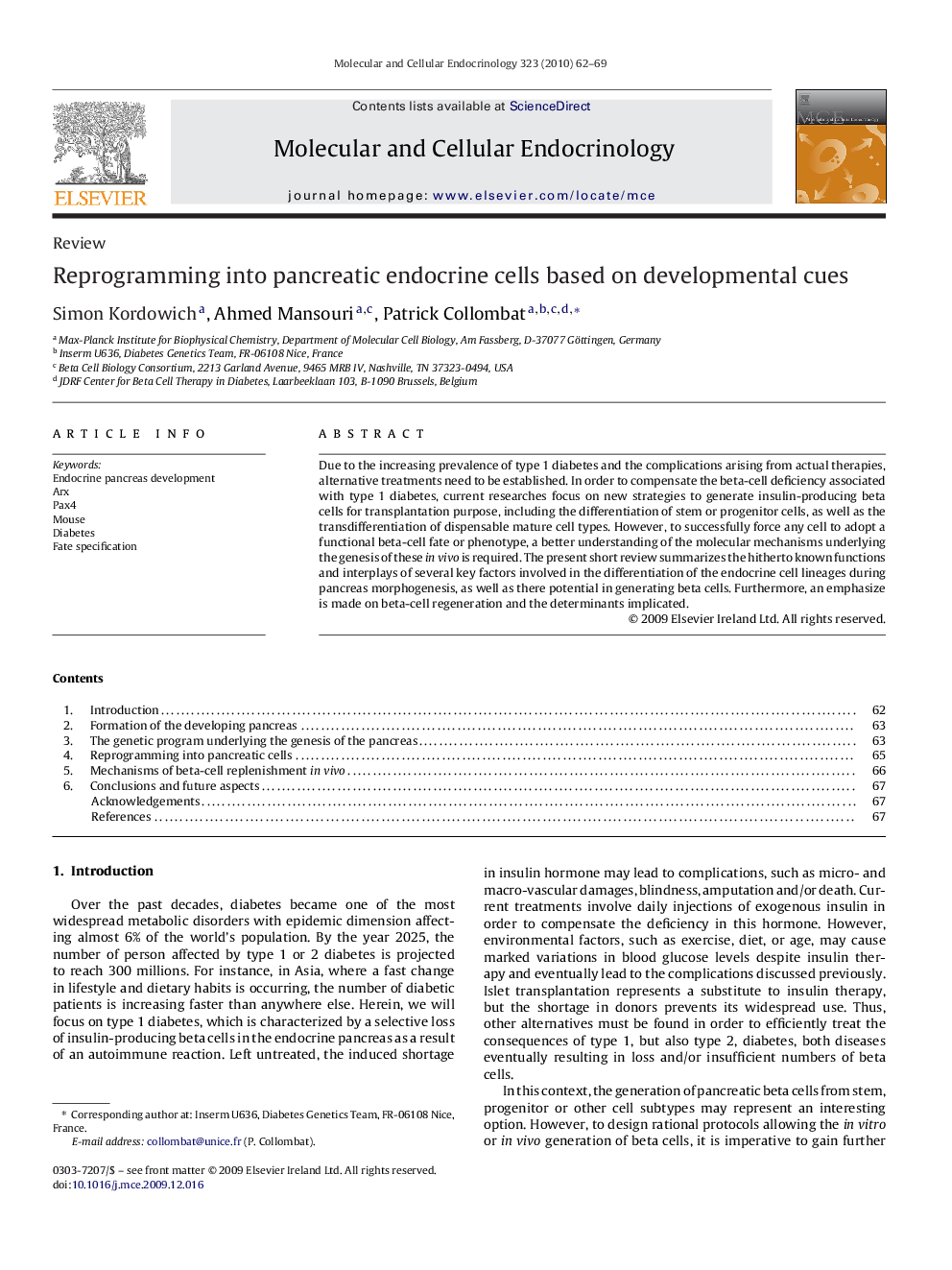| Article ID | Journal | Published Year | Pages | File Type |
|---|---|---|---|---|
| 2196796 | Molecular and Cellular Endocrinology | 2010 | 8 Pages |
Due to the increasing prevalence of type 1 diabetes and the complications arising from actual therapies, alternative treatments need to be established. In order to compensate the beta-cell deficiency associated with type 1 diabetes, current researches focus on new strategies to generate insulin-producing beta cells for transplantation purpose, including the differentiation of stem or progenitor cells, as well as the transdifferentiation of dispensable mature cell types. However, to successfully force any cell to adopt a functional beta-cell fate or phenotype, a better understanding of the molecular mechanisms underlying the genesis of these in vivo is required. The present short review summarizes the hitherto known functions and interplays of several key factors involved in the differentiation of the endocrine cell lineages during pancreas morphogenesis, as well as there potential in generating beta cells. Furthermore, an emphasize is made on beta-cell regeneration and the determinants implicated.
